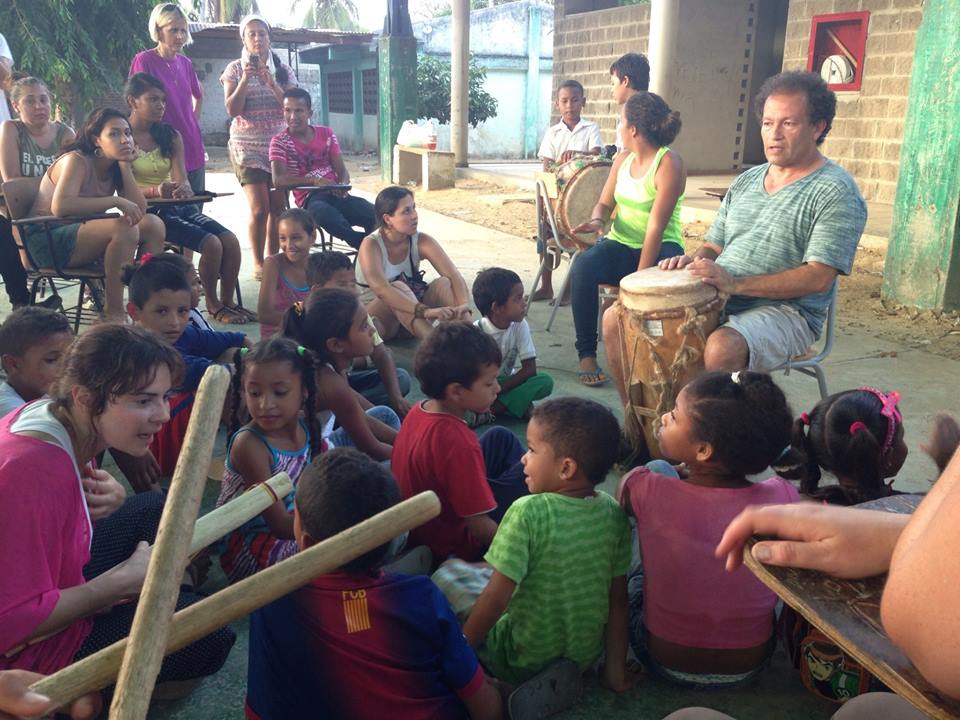News
Little Advocates
Social Work Student Works With Youth in Columbia as Part of an Art Therapy Internship

A small town on the coast of Columbia, Palomino suffers greatly from its close proximity to Venezuela and deteriorating border conditions. Veronica Olivares, a second year student at the Graduate School of Social Work, went there this summer as part of an art therapy internship to work with the children and young adults.
"It was pretty much amazing," said Olivares as she remembered her time in Palomino. "I learned a lot of things about art therapy." The internship brought together an interdisciplinary team of social workers, psychologists and art educators who were interested in combining art with therapy. It was a collaborative effort by nonprofits ImaginAction and ArteRed, both of which support the use of art to raise awareness to social injustice.
Olivares and her teammates trained and bonded before beginning their work in the border town. "We were trained in therapy," she said, "working specifically with people from a community that has been undergoing armed conflict. These people are struggling to maintain their natural resources and have very little power in doing so."
The children, she noted, were eager to work with the interns. They were “little advocates,” bringing up issues that concerned them such as the contamination of the town’s river and the lack of adequate access to education and health care. To help them express their concerns, the residents encouraged them to do it through art. The youngsters, aged 5 to 21, demonstrated their feelings via skits, music and dance.
The trip reinforced Olivares’ interest in dance-movement therapy, which she is considering specializing in after graduation. Not only did she walk away with the experience of hands-on work in art therapy, but she learned a valuable lesson from the children themselves. While the kids did not have much in terms of material possessions, they did exhibit a strong sense of self.
"Regardless of what they are going through, they have that,” said Olivares. "They are so happy with the little bit that they have. That's probably what I learned over there: Less is more."

